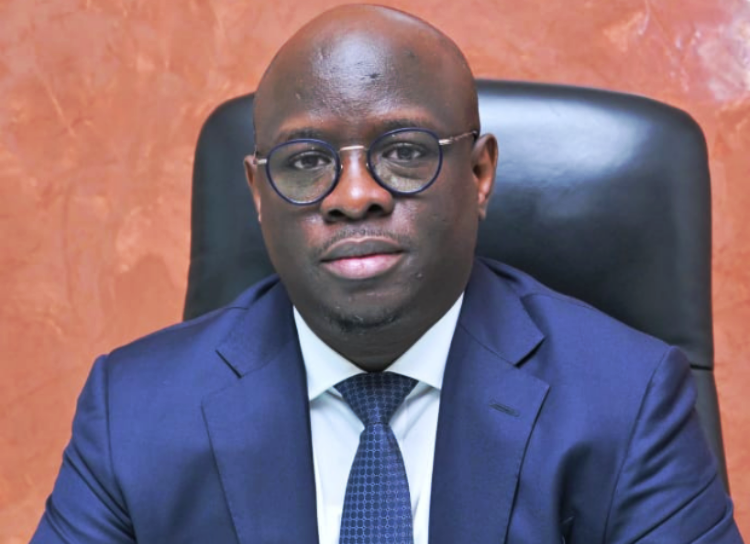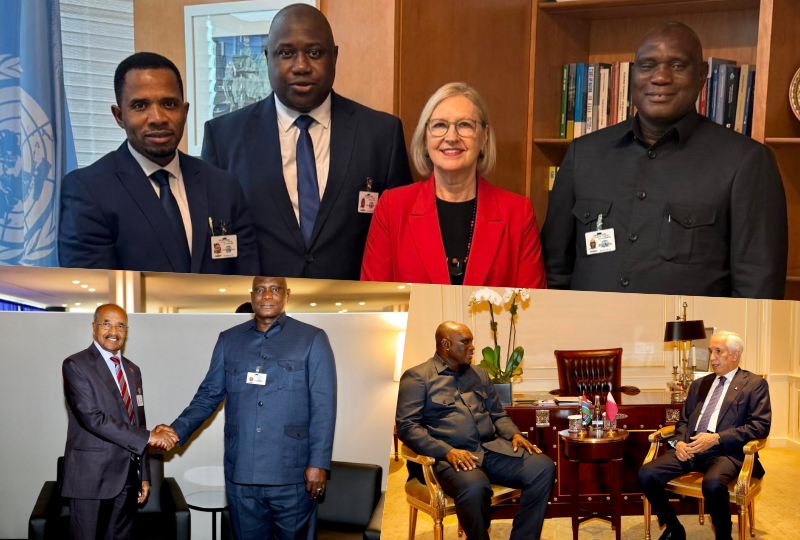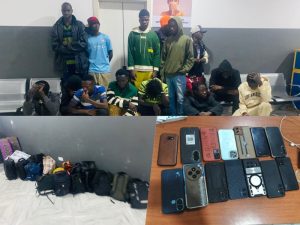Gambiaj.com – (New York, United States) – The Gambia’s delegation to the 80th Session of the United Nations General Assembly (UNGA80) is pursuing a packed agenda of bilateral and multilateral diplomacy, using the sidelines of the gathering in New York to consolidate partnerships and advance key domestic reform priorities.
On Wednesday, the Minister of Foreign Affairs, Sering Modou Njie, together with the Minister of Justice, Dawda A. Jallow, and the Minister of Information, Media, and Broadcasting Services, Dr. Ismaila Ceesay, met with Ms. Elizabeth Spehar, Assistant Secretary-General for Peacebuilding Support at the UN Department of Political and Peacebuilding Affairs (DPPA).
The discussions focused on transitional justice and reparations, the establishment of a specialized court, and ways to strengthen mechanisms for justice, accountability, and reconciliation as part of The Gambia’s ongoing democratic reforms.
The meeting underscored Banjul’s determination to draw on UN expertise and support to help deliver on its transitional justice commitments.
Foreign Minister Njie also held bilateral talks with Eritrea’s Minister of Foreign Affairs, H.E. Osman Saleh Mohammed, exploring potential cooperation in trade and investment, agricultural development and food security, as well as cultural and educational exchanges.
Both ministers also discussed regional peace and security and reaffirmed their intention to work more closely within multilateral institutions.
In a separate engagement, Minister Njie met with the Qatari Minister of State for Foreign Affairs, H.E. Sultan bin Saad Al-Muraikhi, where the two sides discussed strengthening bilateral ties, enhancing cooperation in areas of mutual interest, and identifying new opportunities for collaboration at both the regional and international levels.
These meetings reflect The Gambia’s determination to link its internal reforms to robust international partnerships, diversify its diplomatic relations, and position itself as an active player within the UN system.
By prioritizing transitional justice, deepening ties with key partners, and engaging with the UN peacebuilding architecture, the delegation signalled the government’s commitment to consolidating democratic gains while fostering development, security, and cooperation at home and abroad.










